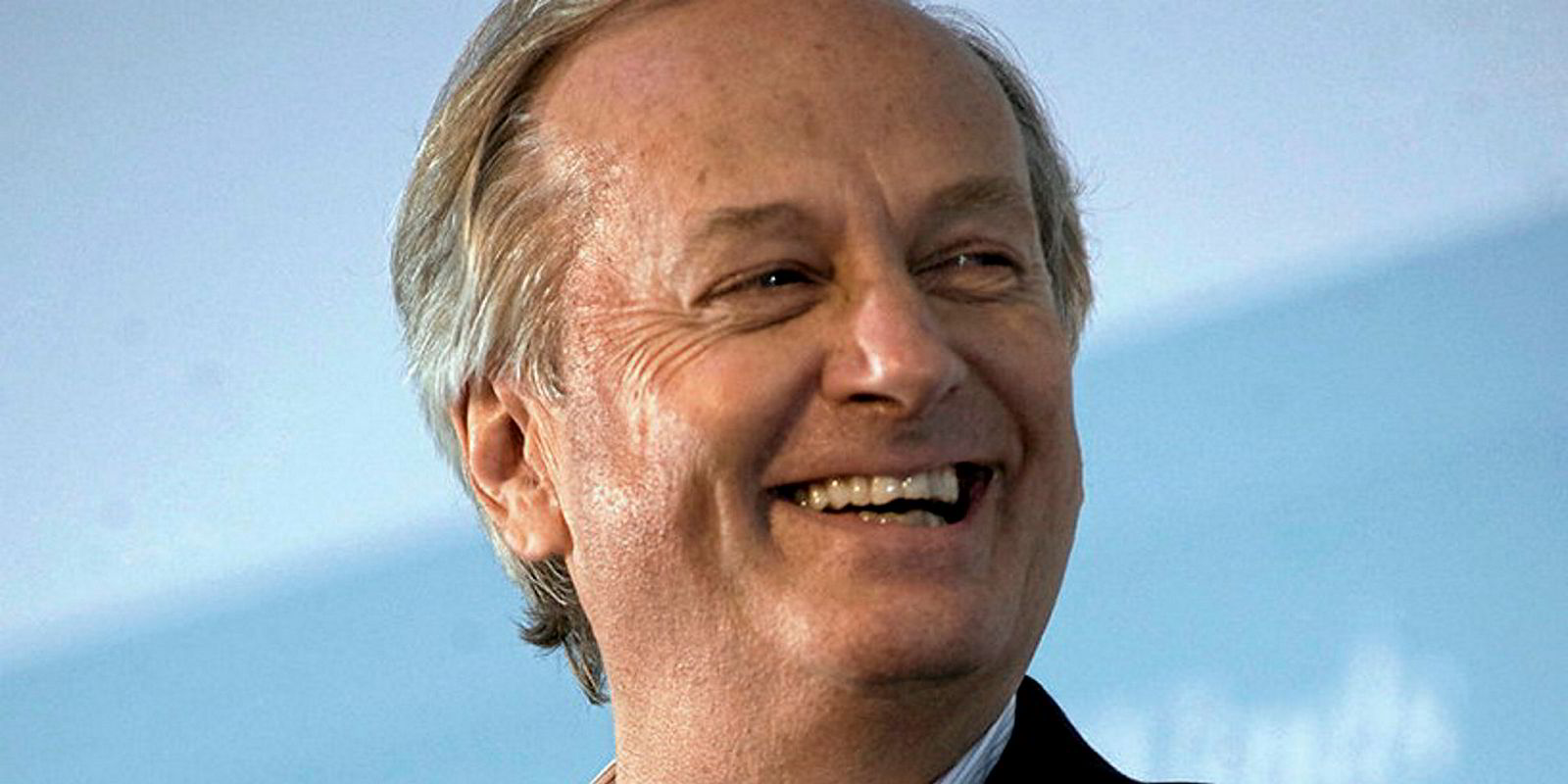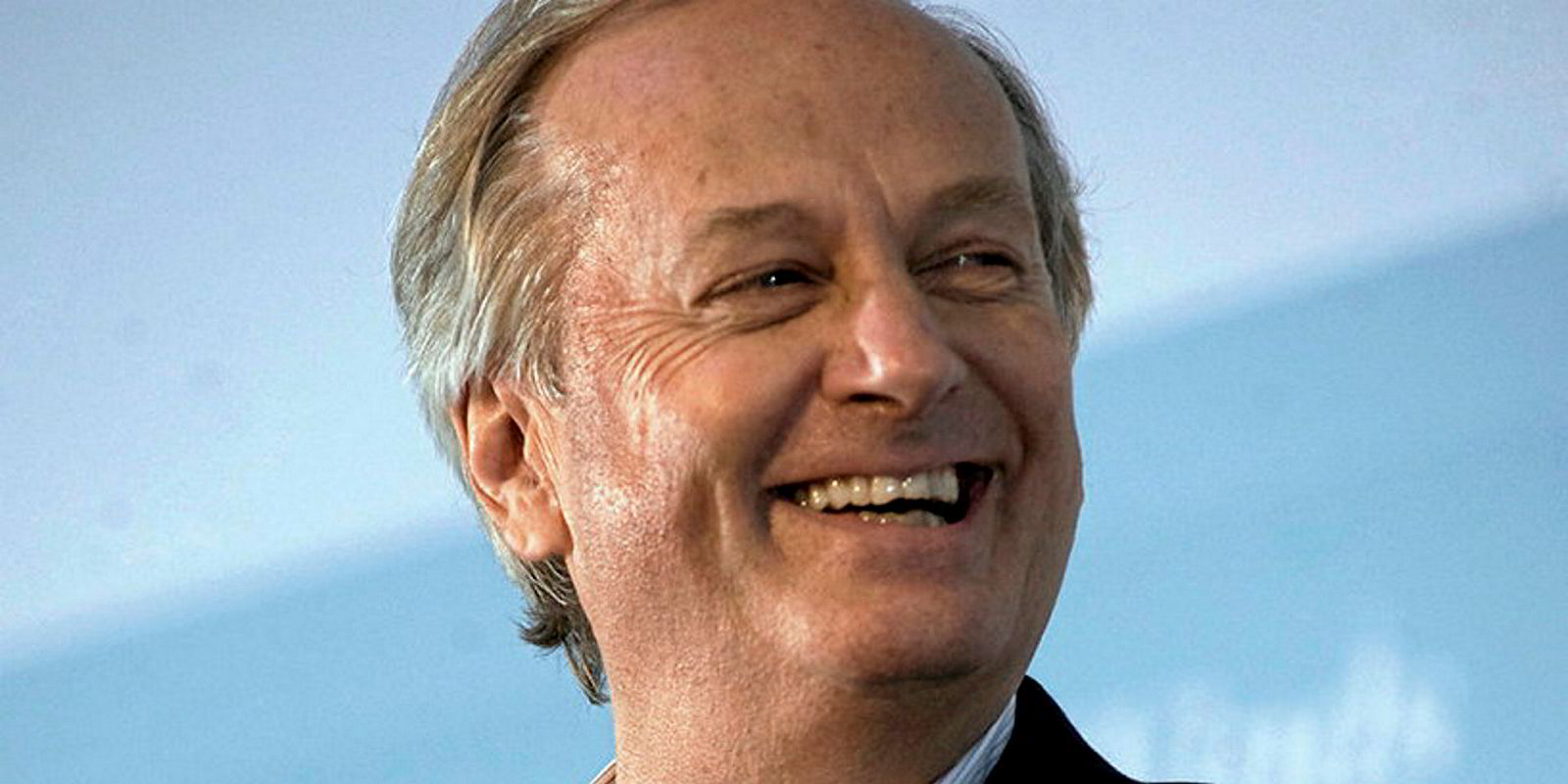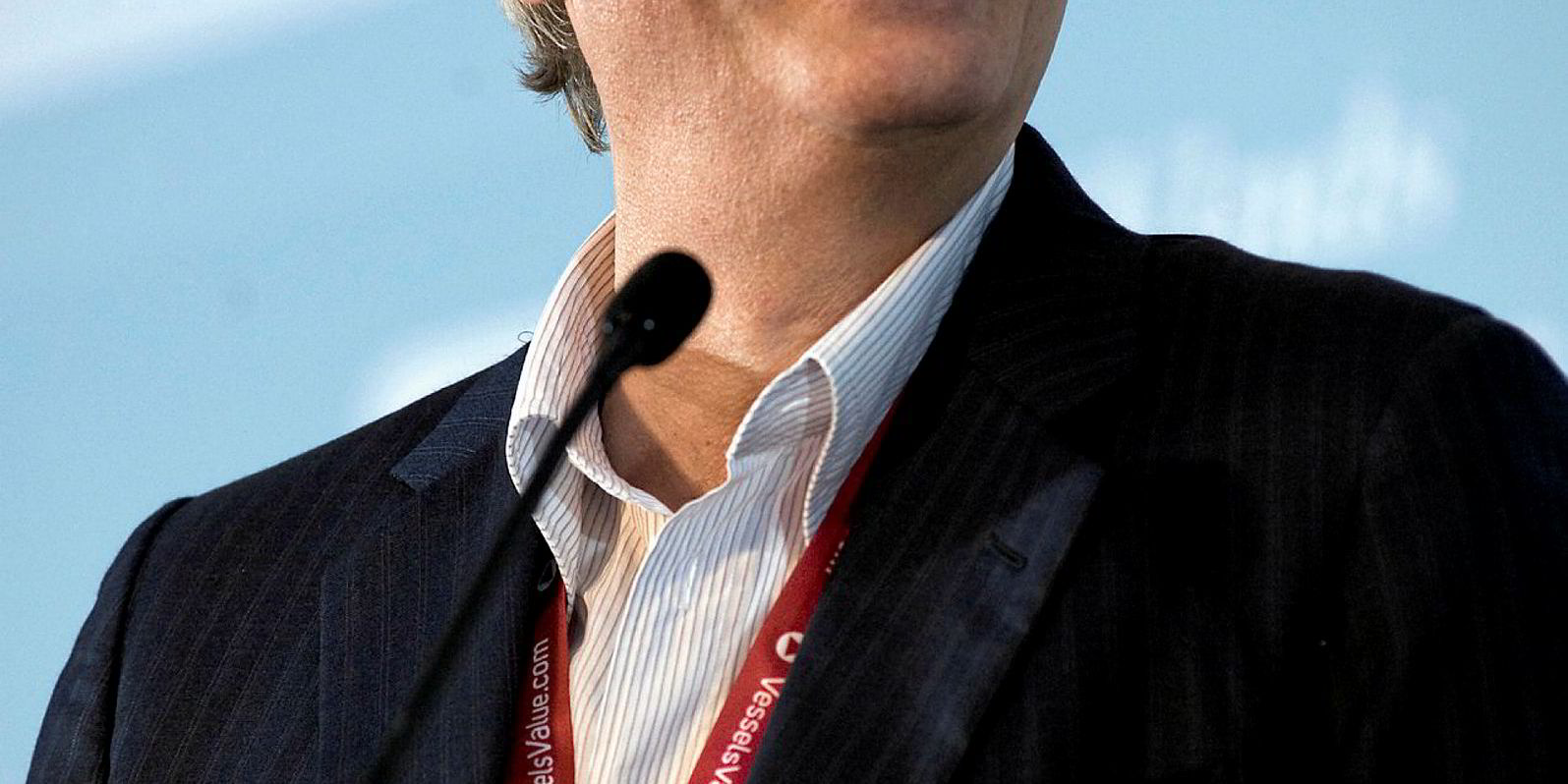We told you everything. That in a nutshell is the argument being advanced by George Economou’s DryShips as it seeks to have a securities fraud lawsuit over its relationship with Kalani Investments dismissed in a New York federal court.
DryShips insists that it fully disclosed all details of a fundraising effort through Kalani that would net it about $700m in equity proceeds between June 2016 and August 2017.
Those public filings with US securities regulators protect it from any liability in the litigation, which is seeking class-action status, brought by shareholders, lawyers assert.
DryShips’ first formal answers to allegations of a plan with Kalani to destroy shareholder value while benefiting its own principals come in a motion to dismiss the lawsuit drafted by Bruce Paulsen, a partner in New York securities law firm Seward & Kissel.
“DryShips disclosed all components of the alleged ‘scheme’ and the risks to shareholders, and therefore had no duty to characterize its conduct, as plaintiffs would have it, as a nefarious plot to dilute shareholders for defendants’ benefit,” the DryShips motion states.
“The omission of plaintiffs’ preferred editorial gloss does not state an actionable claim.”
As TradeWinds has reported, shareholders have filed three separate lawsuits in US federal courts aimed at Kalani’s financing of three New York-listed shipowners: DryShips, Top Ships and Diana Containerships.
Plaintiffs claim the owners and Kalani engaged in a dilutive stock-sales scheme, which, aided by reverse stock splits, in some cases destroyed up to 98% of shareholder value in the companies while enriching the shipowners.
All three owners have said the claims are without merit and are contesting the allegations.
DryShips and Diana Containerships have filed motions to dismiss the lawsuits. Proceedings have not advanced to that stage yet in the Top Ships litigation, as shareholders continue to dispute who should be the lead plaintiffs.
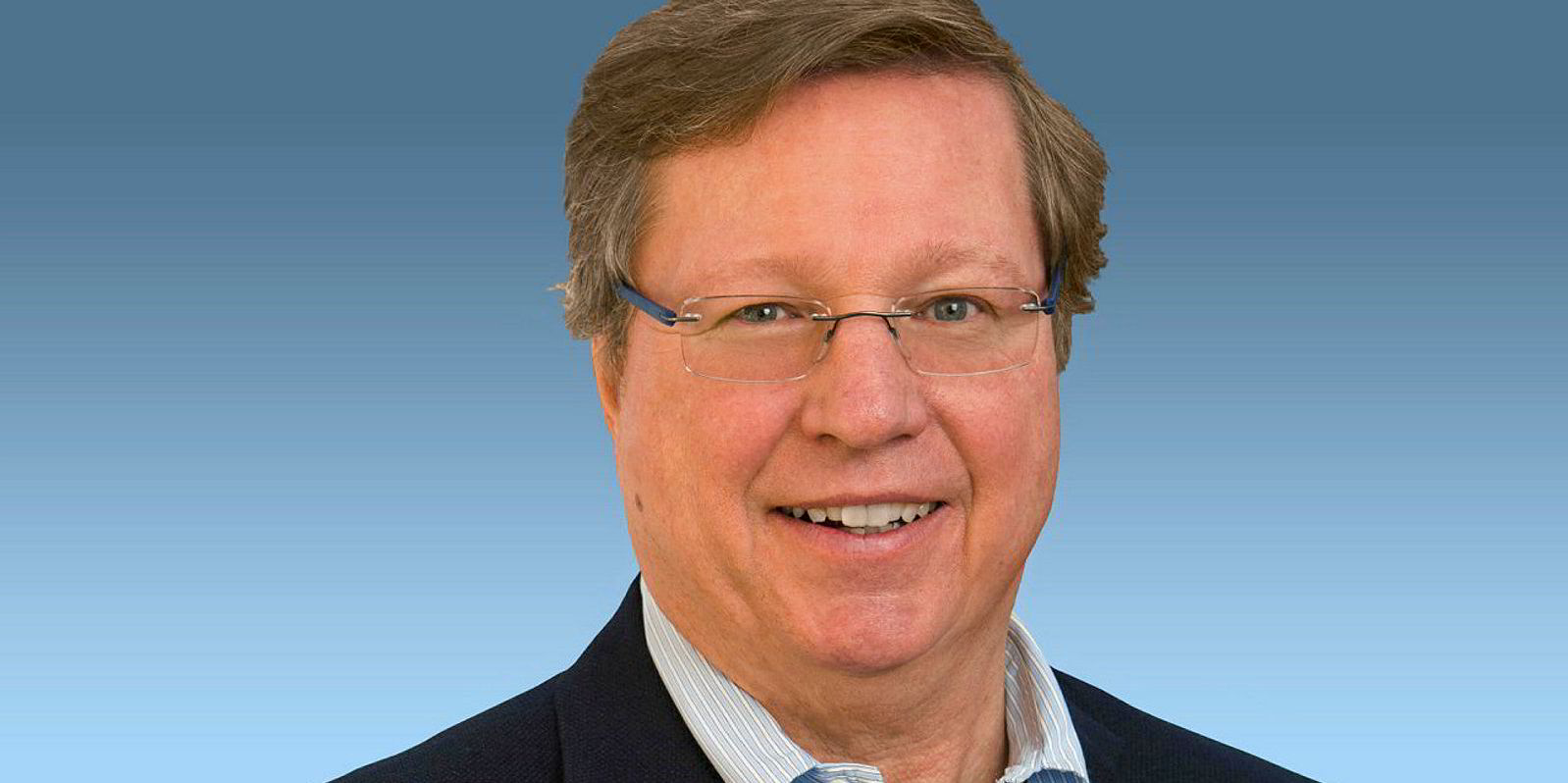
Public filings have revealed that DryShips and Top Ships are being investigated by the US Securities and Exchange Commission (SEC) over the relationship with Kalani, an entity registered in the British Virgin Islands that is controlled by Toronto-based hedge-fund manager Marc Bistricer and Murchinson Ltd.
Bistricer is also described in court documents as having a residence in Brooklyn, New York.
The DryShips matter is pending before Judge Sandra J Feuerstein in the Eastern District of New York.
Feuerstein has made no ruling on DryShips’ motion to dismiss the case.
She has the option to dismiss the complaint in full or in part; allow it move forward; or request oral arguments on the briefs filed to date.
DryShips’ dismissal motion is the fullest indication to date of why defendants maintain that the litigation is without merit, and appears to be a template for the answers to be offered by Diana Containerships and Top Ships as well.
Defendants dispute allegations that the Kalani arrangement was a scheme to defraud investors, saying it was instead vital to DryShips’ survival as a company and the ability to renew its fleet at a dire time in the freight market.
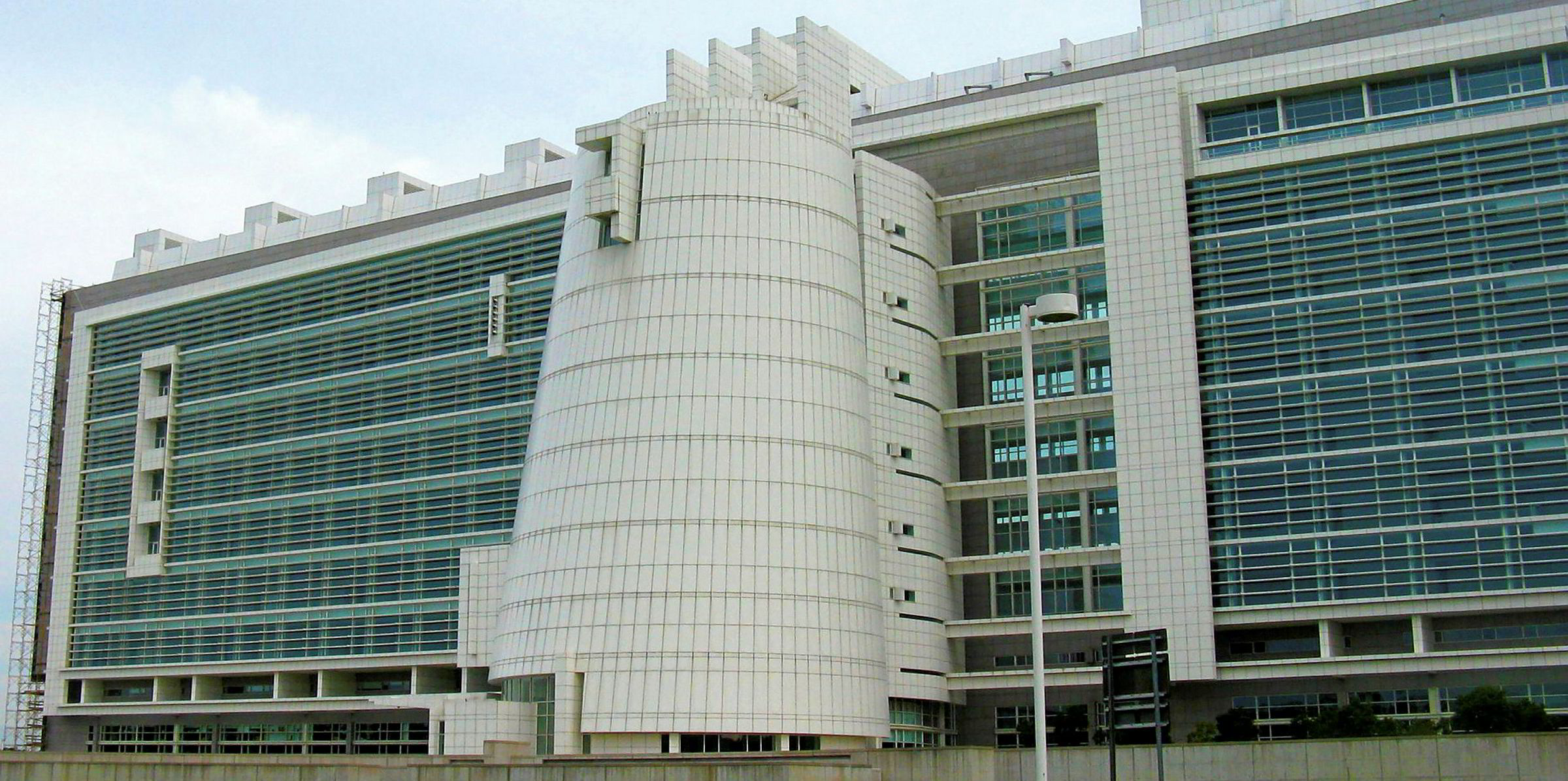
Over a six-month period, proceeds from the Kalani sales helped DryShips acquire 17 vessels with an average age of two years for an aggregate $765.5m.
Five of those came from the private fleet of Economou, while 12 came from third parties, the filing states.
But, however the Kalani relationship is described, details of the arrangement were fully spelt out for investors ahead of time in SEC filings, lawyers maintain.
“DryShips disclosed all objective facts concerning these transactions,” the motion argues.
“Plaintiffs acknowledge as much, but allege that certain cherry-picked quotations from these disclosure documents were misleading because they presented the risks of dilution as a possibility rather than a certainty.”
Plaintiffs allege that DryShips gave the misleading impression that Kalani was a third-party institutional investor taking a position in the company, when in fact it acted as an underwriter and quickly flipped the discounted shares it received back into the market at a profit.
Plummeting share price
As the share price plummeted, DryShips carried out a series of reverse-stock splits to keep the stock eligible for trading and allow the scheme to continue, according to plaintiffs.
The shareholder complaint makes much of the fact that Kalani was not identified as an underwriter for the equity issues in June 2016 and November 2016, but was described as such by DryShips in three subsequent sales.
“DryShips was not required to disclose Kalani as an underwriter for the first two transactions because they involved the sale of different types of securities and the use of different structures than the later three transactions,” the owner maintains.
The first two DryShips-Kalani agreements involved preferred shares and warrants that were exercisable at Kalani’s discretion, and there is no case that DryShips “had any way of knowing” whether they would be exercised, defendants argue.
The three later transactions were pure sales of common shares to be conducted at DryShips’ discretion, and in those cases Kalani was appropriately described as an underwriter, defendants state.
Similarly, DryShips attacks the premise that the Kalani scheme was designed to provide millions of dollars in personal profits for Economou, chief financial officer Anthony Kandylidis (Economou’s nephew) and their related companies.
Monies paid out of DryShips’ coffers to the executives or private companies reflected the owner’s normal business practices, and there is no evidence that DryShips paid for any services not rendered, the motion states.
